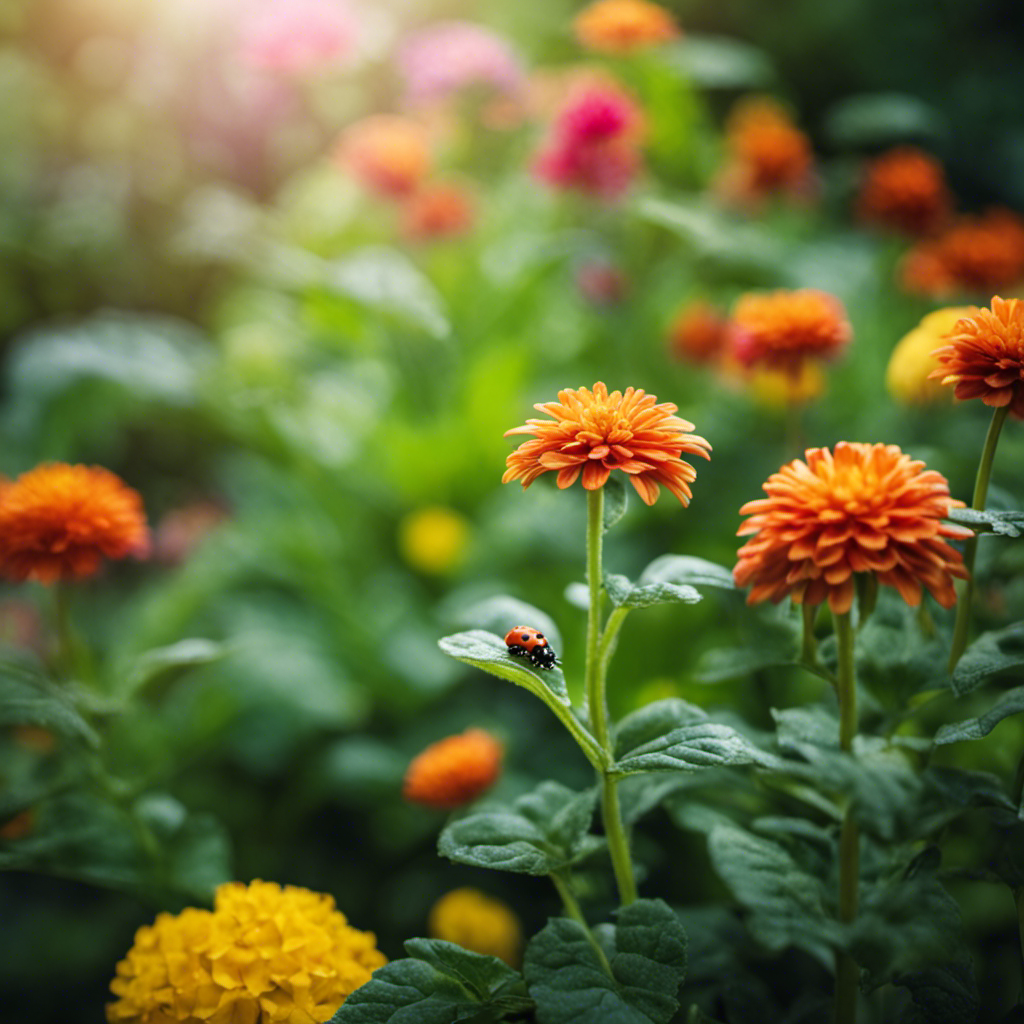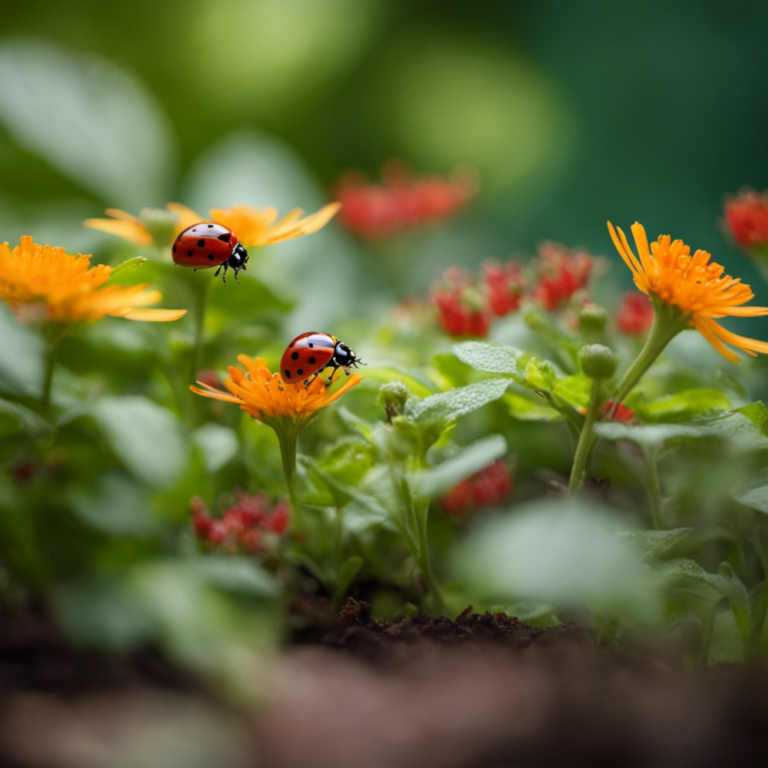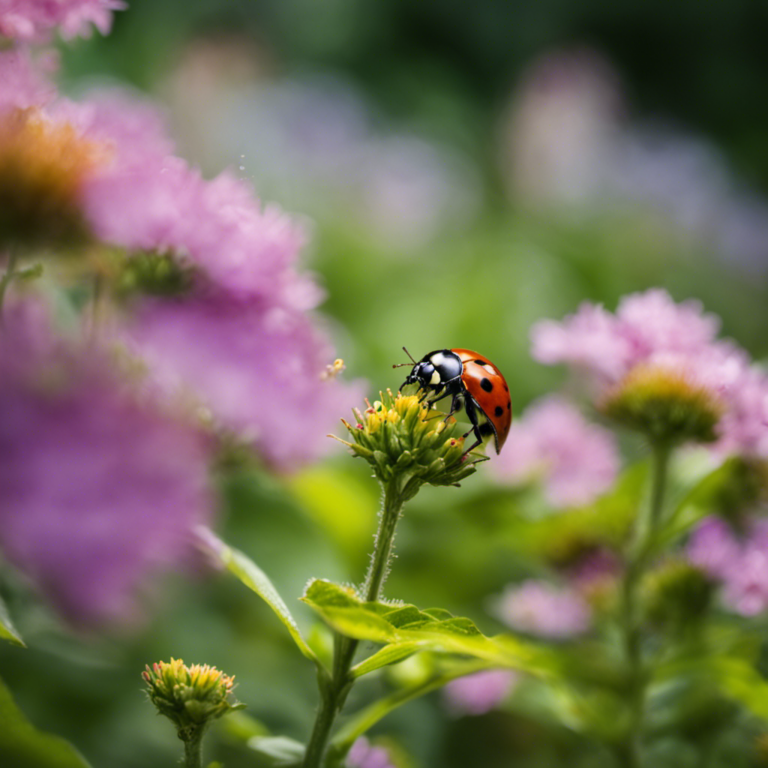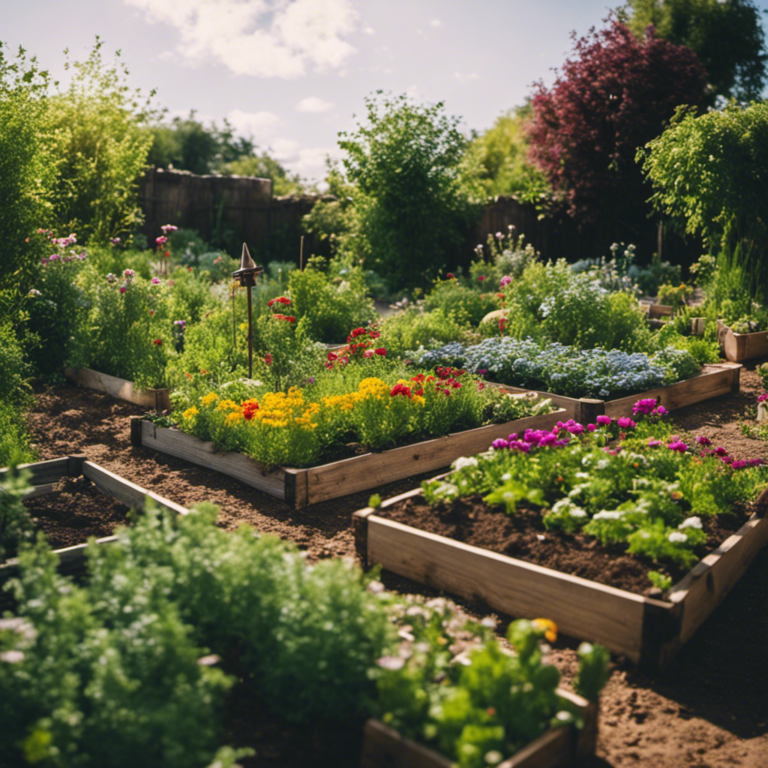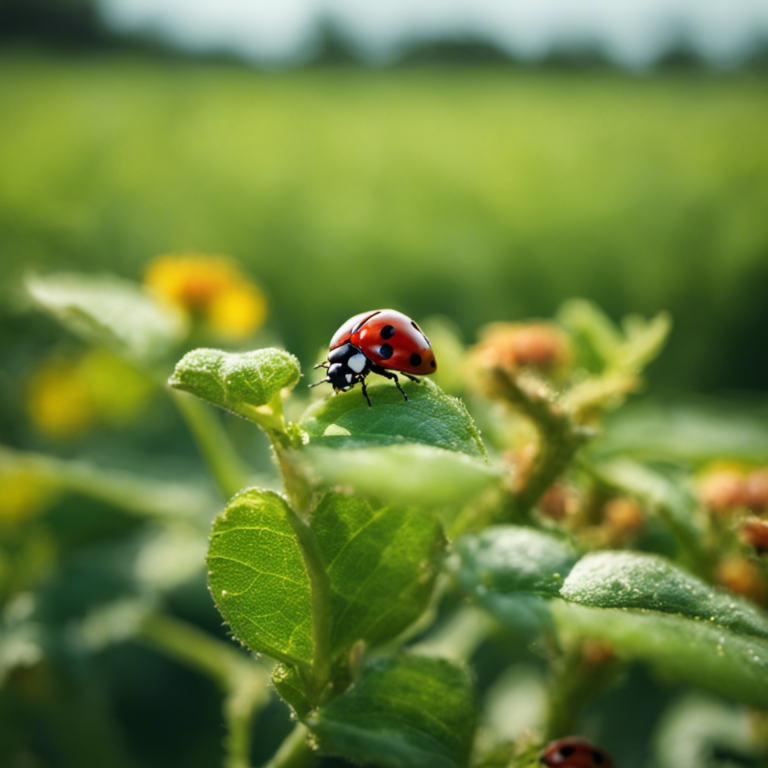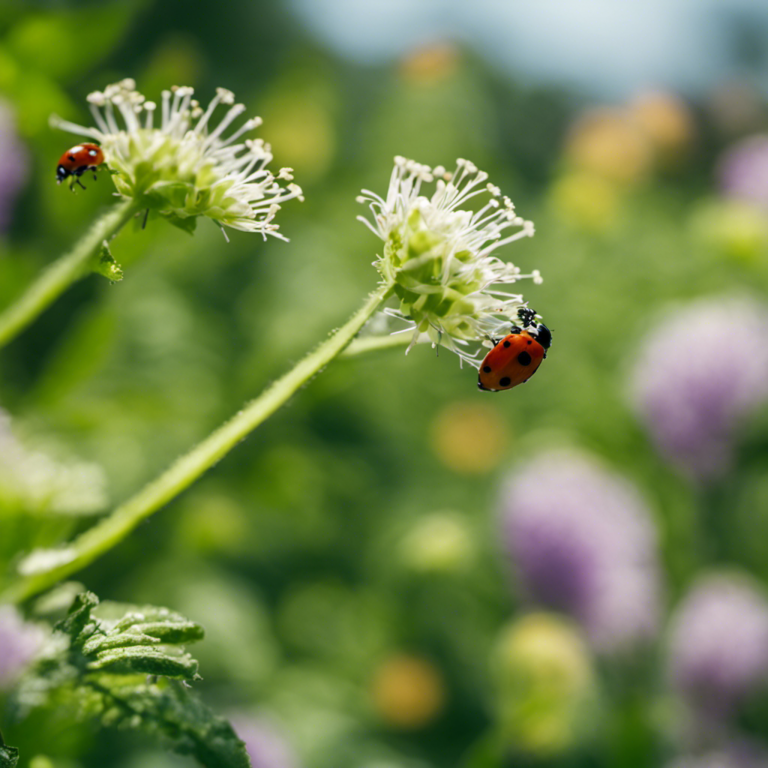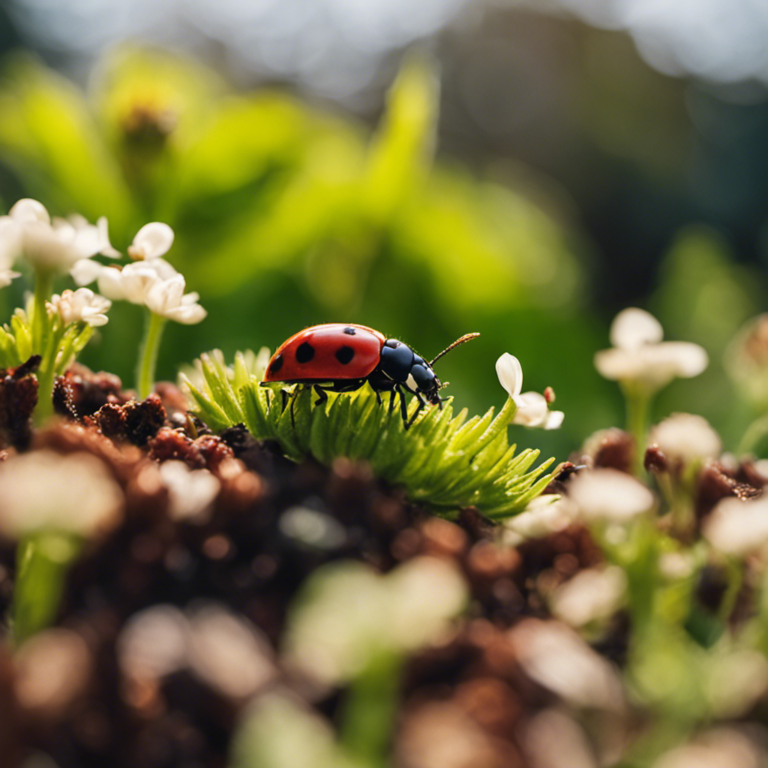Are pests causing problems in your garden? Don’t worry, we have the perfect solution!
Get ready to learn about effective and environmentally friendly methods to deal with unwanted visitors in your garden. From using natural repellents to attracting beneficial insects, implementing physical barriers, practicing companion planting, and using organic pesticides, we have you covered.
Say goodbye to harmful chemicals and say hello to a thriving, eco-conscious garden.
Get ready to become the expert of your own green oasis!
Key Takeaways
Implementing green pest solutions in your garden can help create a balanced ecosystem that benefits both your plants and the environment. By using natural repellents, beneficial insects, physical barriers, and companion planting, you can protect your garden in an environmentally-friendly way. Embrace practices that are friendly to nature and allow for a flourishing environment where plants and insects coexist harmoniously. This not only creates a vibrant and sustainable haven but also supports the well-being of all living beings. Choose earth-friendly gardening practices and let nature thrive!
Natural Repellents
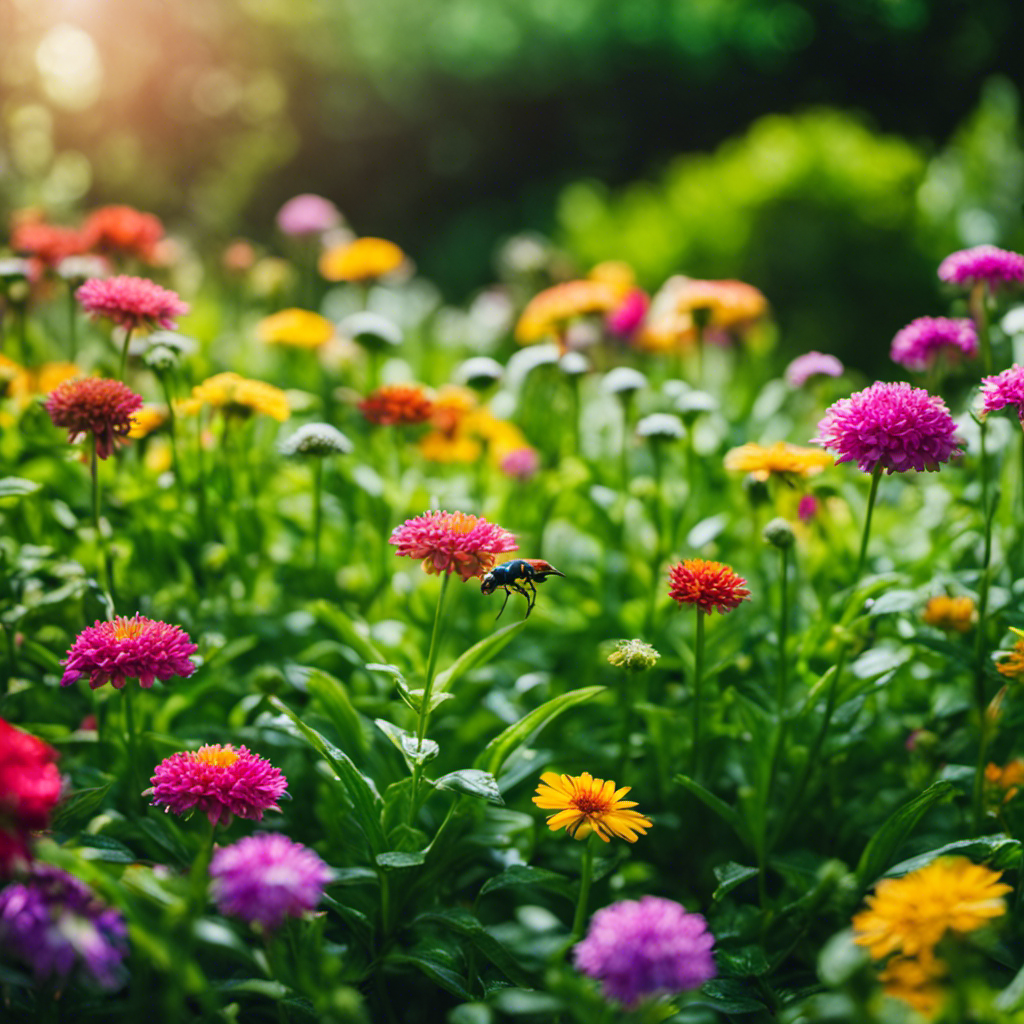
If you’re searching for effective and environmentally friendly methods to keep pests away from your garden, consider these five natural repellents.
Natural repellents provide a safe alternative to harmful chemicals and can effectively protect your plants without causing harm to the environment.
One simple homemade solution involves creating a mixture of crushed garlic cloves and water. By spraying this strong-smelling solution onto your plants, you can repel pests such as aphids and beetles.
Another option is to utilize chili pepper spray. Mixing chili powder or flakes with water and applying it to your plants can deter insects.
Additionally, essential oils like peppermint or lavender can be used to repel pests. Dilute a few drops of the oil in water and spray it onto your plants.
These natural repellents not only prove to be effective but are also safe for your garden and the environment.
Beneficial Insects
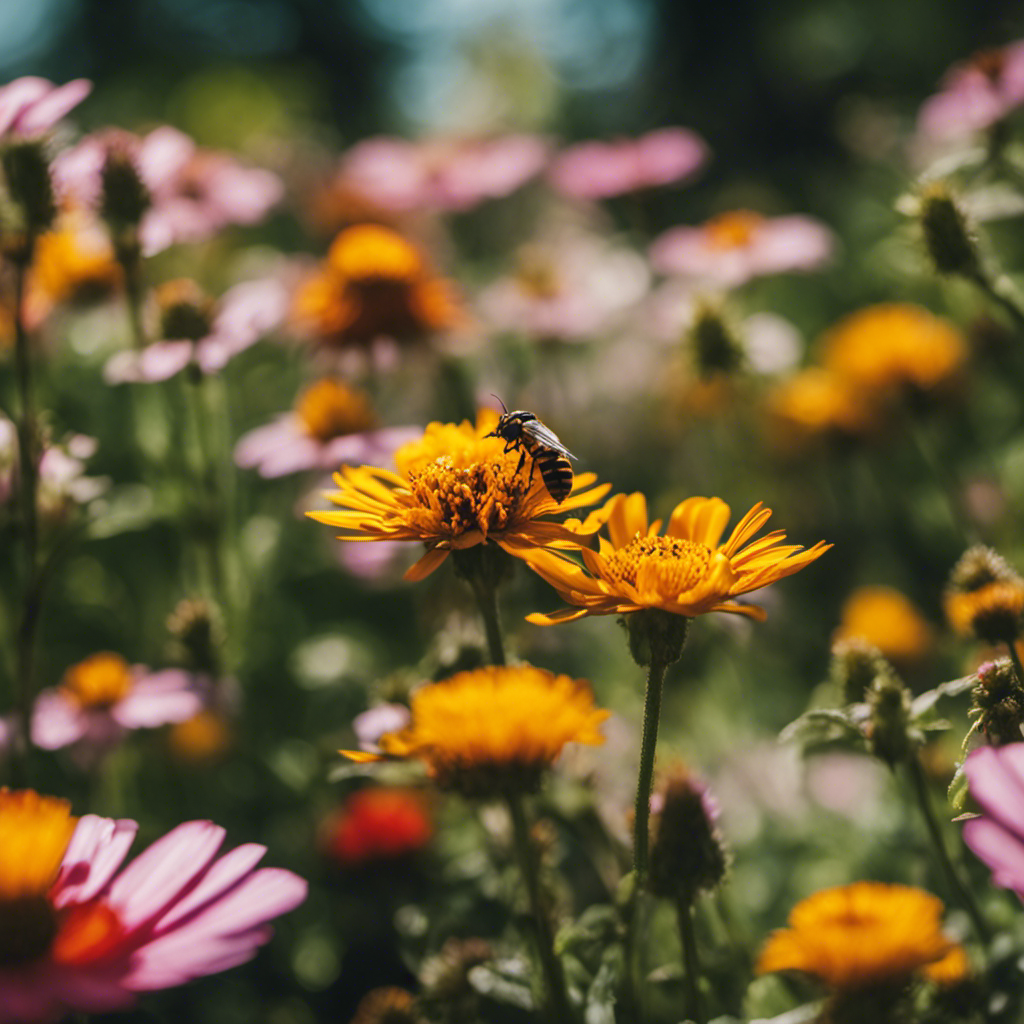
To continue protecting your garden in an environmentally friendly way, let’s now explore the role of beneficial insects. These incredible creatures not only help to pollinate your plants but also act as natural pest control agents, reducing the need for harmful chemicals.
Here are a few key ways in which beneficial insects can benefit your garden:
-
Attracting Bees: Bees are essential for pollination and the production of fruits and vegetables. By creating a welcoming environment for bees with native plants and flowers, you can ensure a healthy and productive garden.
-
Biological Control: Beneficial insects like ladybugs, lacewings, and hoverflies prey on garden pests such as aphids, mites, and caterpillars. By introducing these insects into your garden, you can naturally control pest populations without resorting to chemical pesticides.
Physical Barriers
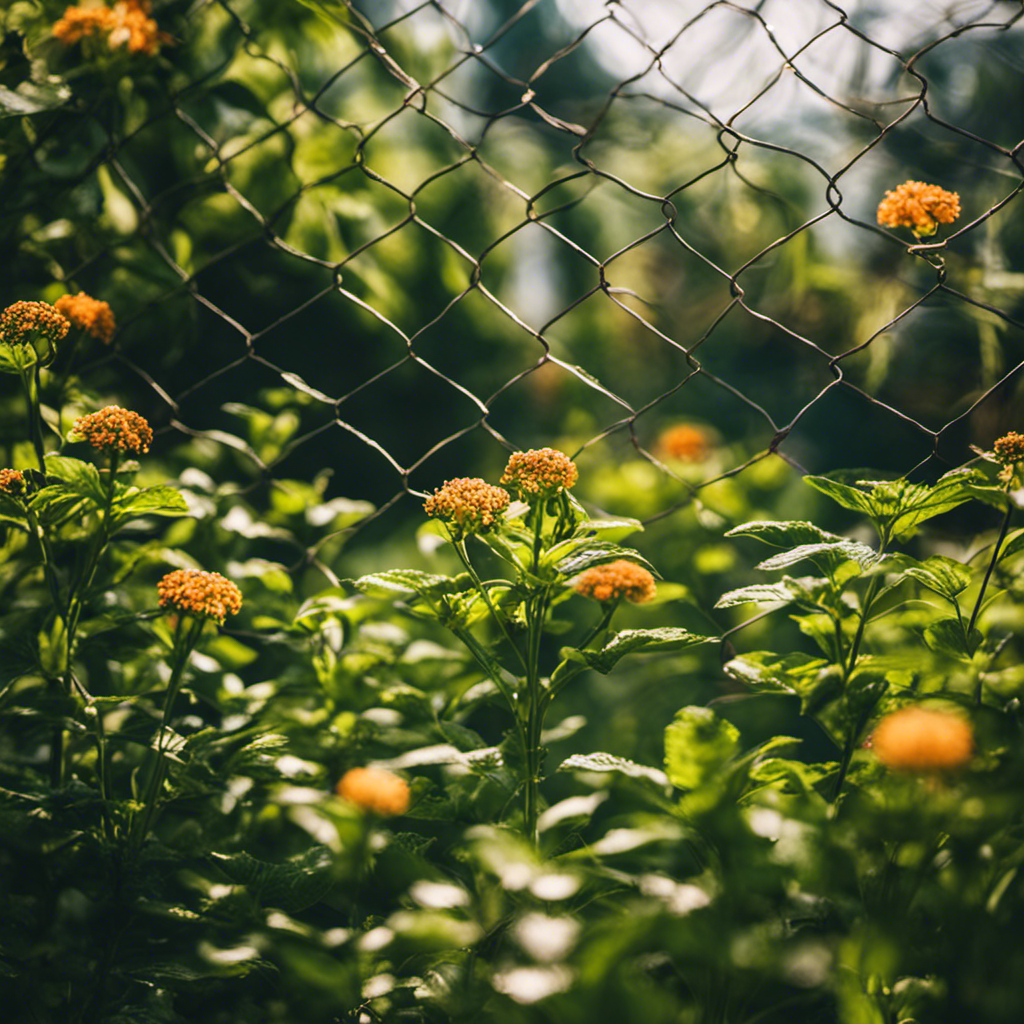
Are you wondering how to protect your garden from pests without using harmful chemicals or pesticides?
One effective solution is to use physical barriers in your gardening practices. Physical barriers are a natural and eco-friendly way to keep pests out of your garden. By creating barriers, you can prevent pests from accessing your plants and causing damage.
Some common types of physical barriers include fences, netting, and row covers. These barriers act as shields, preventing pests from reaching your plants.
Additionally, planting pest-resistant plants can also serve as a form of physical barrier. These plants naturally repel pests, reducing the need for chemical interventions.
Companion Planting
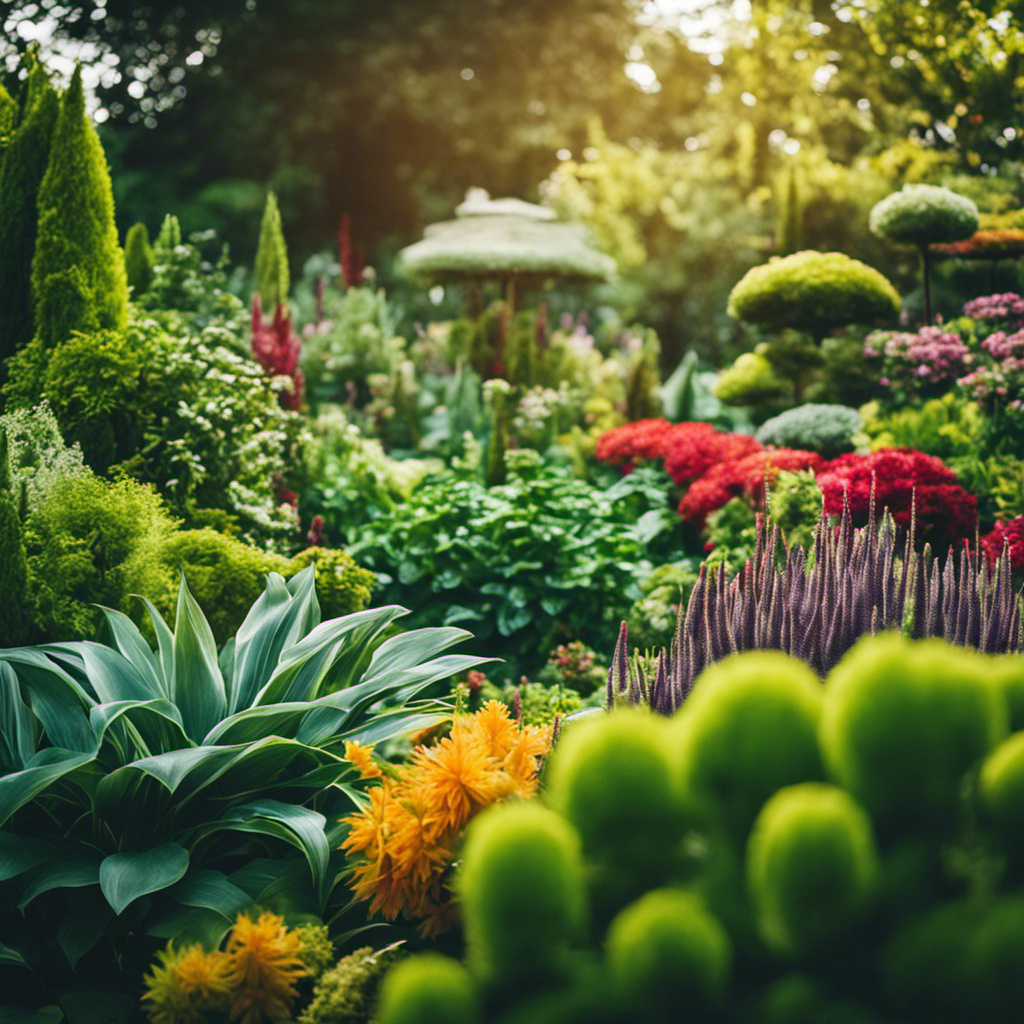
Incorporating companion planting into your gardening practices can enhance the effectiveness of your pest control methods. Companion planting involves growing certain plants together to benefit each other and deter pests naturally.
Here are some benefits of companion planting to keep in mind:
-
Intercropping: Planting different crops together can maximize the use of space in your garden and increase overall productivity.
-
Pest control: Certain plants repel pests or attract beneficial insects that prey on pests, reducing the need for chemical pesticides.
-
Nutrient cycling: Companion plants can improve soil fertility by fixing nitrogen or accumulating nutrients, reducing the need for synthetic fertilizers.
-
Crop rotation: Rotating crops disrupts pest life cycles and reduces the risk of disease buildup in the soil.
Organic Pesticides
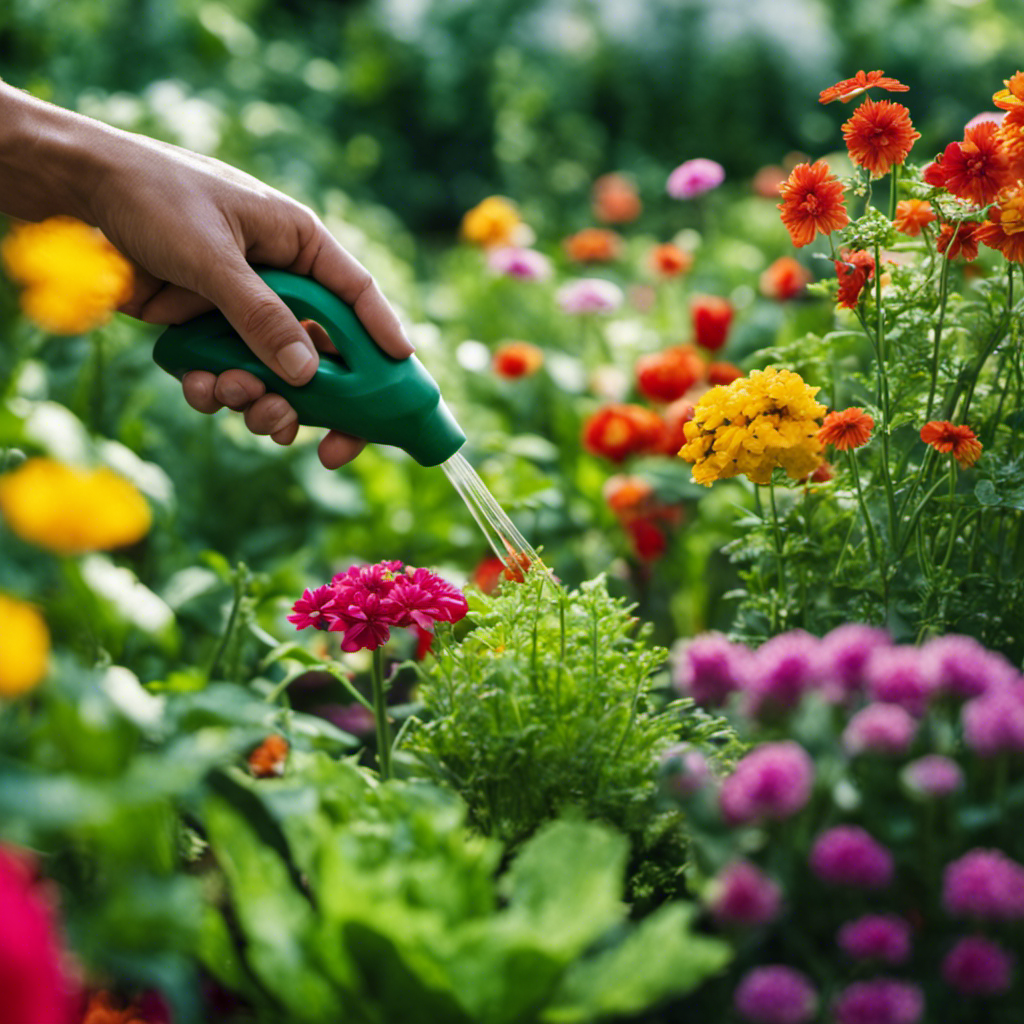
Using companion planting in your gardening practices can improve the effectiveness of your pest control methods, including the use of organic pesticides.
When it comes to protecting your garden from pests, choosing chemical-free alternatives is a smart decision. Organic pesticides provide a non-toxic solution that’s both effective and environmentally friendly.
These pesticides are derived from natural ingredients like plant extracts and essential oils, which specifically target pests without harming beneficial insects or pollinators.
By utilizing organic pesticides, you can ensure the health and safety of your plants while also preserving the overall ecosystem of your garden.
Conclusion
By implementing green pest solutions in your garden, you can create a harmonious ecosystem that benefits both your plants and the environment.
Using natural repellents, beneficial insects, physical barriers, and companion planting, you can protect your garden in a way that’s friendly to the earth.
Let your garden become a sanctuary where plants and insects coexist in perfect harmony, creating a vibrant and sustainable haven for all living beings.
Choose environmentally-friendly practices and let nature flourish!
